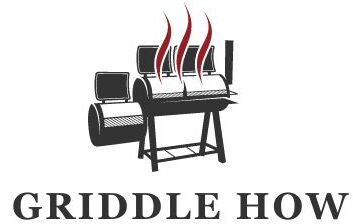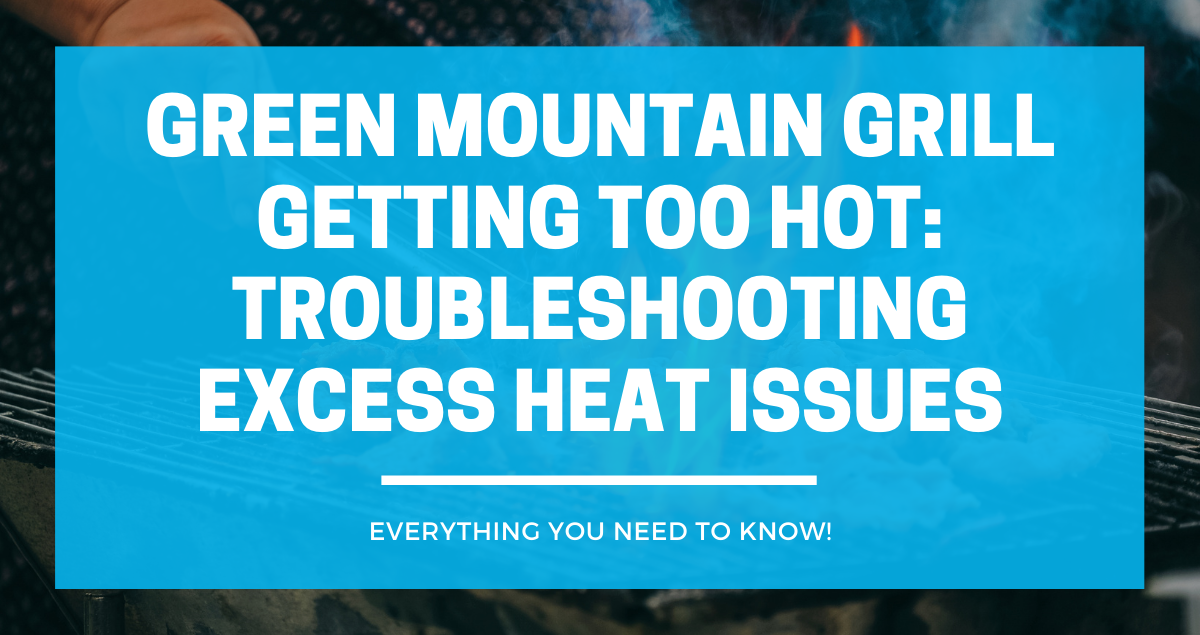Are you having trouble with your Green Mountain Grill getting too hot? You’re not alone. Many users have reported that their grills reach temperatures beyond what is necessary for proper cooking, leading to uneven cooking, overcooked meats, and potential fire hazards.
In this article, we’ll provide you with tips and tricks to troubleshoot your Green Mountain Grill and get it back to proper cooking temperatures.
Let’s get started, shall we?
Green Mountain Grill
Components and Their Functions
- Hopper: This is where the pellets are stored. The hopper feeds the pellets into the firepot, which then ignites and heats up the grill.
- Firepot: The firepot is where the pellets are burned. The heat from the firepot is what cooks your food.
- Auger: The auger is responsible for moving the pellets from the hopper to the firepot. It does this by rotating and pushing the pellets forward.
- Fan: The fan blows air into the firepot, which helps to regulate the temperature of the grill.
- Thermal Sensor: The thermal sensor is a safety feature that shuts off the grill if it gets too hot. It is located near the firepot and measures the temperature of the grill.
Temperature Control System
The temperature control system of your Green Mountain Grill is what allows you to set the temperature of the grill and maintain it throughout the cooking process.
Here are the different components of the temperature control system:
- Controller: The controller is the brain of the grill. It is where you set the temperature and control the various features of the grill.
- RTD Probe: The RTD probe is located near the firepot and measures the temperature of the grill. It sends this information to the controller, which uses it to regulate the temperature.
- Fan: The fan blows air into the firepot, which helps to regulate the temperature of the grill.
- Auger: The auger is responsible for moving the pellets from the hopper to the firepot. It does this by rotating and pushing the pellets forward.
Common Reasons for Overheating
#1. Faulty Temperature Sensor
One of the most common reasons for overheating is a faulty temperature sensor. The temperature sensor is responsible for regulating the temperature of the grill, and if it is not functioning properly, it can cause the grill to get too hot.
If you suspect that the temperature sensor is faulty, you should contact a professional to have it replaced.
#2. Improper Airflow
Another common reason for overheating is improper airflow. If the grill is not getting enough airflow, it can cause the temperature to rise too high.
This can be caused by a number of factors, including a clogged air intake, a dirty fan, or a malfunctioning exhaust system. To prevent this from happening, make sure that the air intake and exhaust system are clean and functioning properly.
#3. Excessive Pellet Usage
Finally, excessive pellet usage can also cause the grill to get too hot. If you are using too many pellets, it can cause the temperature to rise too high, which can lead to uneven cooking and overcooked meats.
To prevent this from happening, make sure that you are using the correct amount of pellets for your grill and that you are not overfilling the hopper.
Preventive Measures for Overheating
#1. Regular Maintenance
One of the most important preventive measures you can take is to perform regular maintenance on your grill. This includes cleaning the grill grates, removing any excess ash, and checking the burn pot for any obstructions.
You should also inspect the firebox and make sure it’s free of any debris or buildup.
#2. Proper Ventilation
Another key factor in preventing overheating is proper ventilation. Make sure your grill is located in an area with adequate airflow, and keep the vents open while you’re cooking.
If your grill is located in an enclosed space, such as a garage or covered patio, you may need to install a vent hood to help circulate air and prevent overheating.
#3. Appropriate Pellet Usage
The type and quality of pellets you use can also impact the temperature of your grill. Make sure you’re using high-quality pellets that are appropriate for your grill’s temperature range.
Using low-quality pellets or pellets that are designed for high-temperature grilling can cause your grill to overheat.
You should also avoid overloading the hopper with too many pellets, as this can cause the grill to burn hotter than necessary.
Troubleshooting Overheating Issues
#1. Resetting the Grill
One possible solution is to reset the grill. To do this, turn off the grill and unplug it from the power source. Wait for a few minutes before plugging it back in and turning it on again.
This can help to reset the temperature control system and resolve any issues that may be causing the grill to overheat.
#2. Replacing Faulty Components
If resetting the grill does not resolve the issue, it may be necessary to replace faulty components. The thermal sensor is a common culprit when it comes to overheating issues.
If the sensor is dirty or malfunctioning, it may be sending incorrect temperature readings to the grill’s control panel, causing it to overheat.
Another component that can cause overheating issues is the control panel itself. If the panel is damaged or malfunctioning, it may be sending incorrect signals to the grill’s heating element, causing it to overheat.
In this case, you may need to replace the entire control panel with a like-for-like replacement.
It is important to note that attempting to repair or replace components on your own can be dangerous and may void any warranties on your grill.
When to Seek Professional Help
If you’ve tried troubleshooting your grill and the issue persists, it may be time to seek professional help. Additionally, if you’re uncomfortable working with electrical components or making adjustments to your grill’s settings, it’s best to leave it to the professionals.
Some signs that it’s time to call in a professional include:
- Your grill is consistently getting too hot or not hot enough, despite making adjustments to the settings.
- You’ve noticed unusual noises or smells coming from your grill.
- You’re experiencing electrical issues, such as tripped breakers or blown fuses.
Frequently Asked Questions
How do I adjust the temperature on my Green Mountain grill?
To adjust the temperature on your Green Mountain grill, you can use the digital control panel. Simply press the up or down arrow buttons to increase or decrease the temperature. You can also adjust the temperature using the Green Mountain app on your smartphone.
Why does my Green Mountain grill keep getting hotter?
There are several reasons why your Green Mountain grill might keep getting hotter. One reason could be that the temperature probe is malfunctioning or has become dislodged. Another reason could be that the auger is feeding too many pellets into the firepot, causing the grill to get hotter than intended.
What causes temperature fluctuations on Green Mountain grills?
Temperature fluctuations on Green Mountain grills can be caused by a variety of factors, including wind, ambient temperature, and pellet quality. It’s also possible that the grill’s temperature probe is malfunctioning or that the auger is feeding too many or too few pellets into the firepot.
How do I troubleshoot a constant alarm on my Green Mountain grill?
If your Green Mountain grill is constantly sounding an alarm, it could be due to a variety of issues. Check to make sure that the grill’s temperature probe is properly inserted and functioning correctly. You should also check to make sure that the hopper is properly filled with pellets and that the auger is feeding pellets into the firepot properly.
Why is my Green Mountain grill fan pulsing?
If your Green Mountain grill fan is pulsing, it could be due to a variety of factors. One possible cause could be that the grill’s temperature probe is malfunctioning, causing the fan to turn on and off in an attempt to regulate the temperature. Another possible cause could be that the grill’s firepot is clogged with ash or debris, causing the fan to work harder than necessary.
How do I prevent my pellet grill from getting too hot?
To prevent your pellet grill from getting too hot, make sure that the grill’s temperature probe is properly inserted and functioning correctly. You should also check to make sure that the hopper is properly filled with pellets and that the auger is feeding pellets into the firepot properly. Additionally, you can try adjusting the grill’s temperature settings or using a different brand of pellets that burn at a lower temperature.

